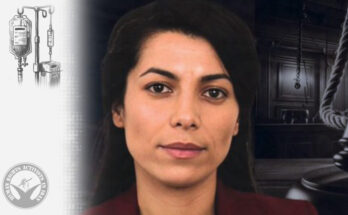Source: Iran International

The Islamic Republic has officially postponed the implementation of the controversial hijab law that imposes severe penalties on women and girls who defy veiling requirements, following huge backlash from the public and the international community.
Iran’s Supreme National Security Council, in a letter to the parliament on Saturday, requested that the process of implementing the Hijab and Chastity law be halted so that an amended bill can be submitted to the parliament by the government, said a member of the Parliament’s presiding board.
The ‘Law on Protecting the Family through the Promotion of the Culture of Chastity and Hijab,’ comprising 74 articles, was set to take effect yesterday. It imposes severe penalties on women and girls who defy veiling requirements, including exorbitant fines, prison terms, flogging, and even death penalty.
On Tuesday, Amnesty International condemned the new law, saying it intensifies the oppression of women and girls while exposing activists opposing the rules to charges carrying the death penalty.
“Iranian authorities have adopted a new draconian law that further erases the human rights of women and girls, imposing the death penalty, flogging, prison terms, and other severe penalties to crush ongoing resistance to compulsory veiling,” Amnesty International said in a press release.
Drafted in May 2023, less than a year after the Woman Life Freedom uprising sparked by the death in custody of Mahsa Amini in September 2022, the law was introduced in response to widespread defiance of compulsory veiling by women and girls, Amnesty said.
Amnesty detailed sections of the new law and how it, warning it criminalizes acts such as “nudity, indecency, unveiling and bad dressing.”
Article 50 of the law defines “unveiling” as failing to cover the head with a hijab, chador, or headscarf. “Bad dressing” is defined in Article 48 as exposing body parts below the neck, other than the hands and feet, or wearing clothing deemed to “contribute to or incite sin by others”.
However, the rights group warned terms such as “nudity” and “indecency” remain undefined in the new law, allowing for subjective interpretation and enforcement.
Amnesty highlighted that activism against the hijab law may even be deemed “corruption on earth,” a charge punishable by death under Iran’s penal code—a concern recently raised by Iranian women’s rights activists.
“This shameful law intensifies the persecution of women and girls for daring to stand up for their rights following the ‘Woman Life Freedom’ uprising,” said Diana Eltahawy, Amnesty International’s deputy regional director for the Middle East and North Africa.




